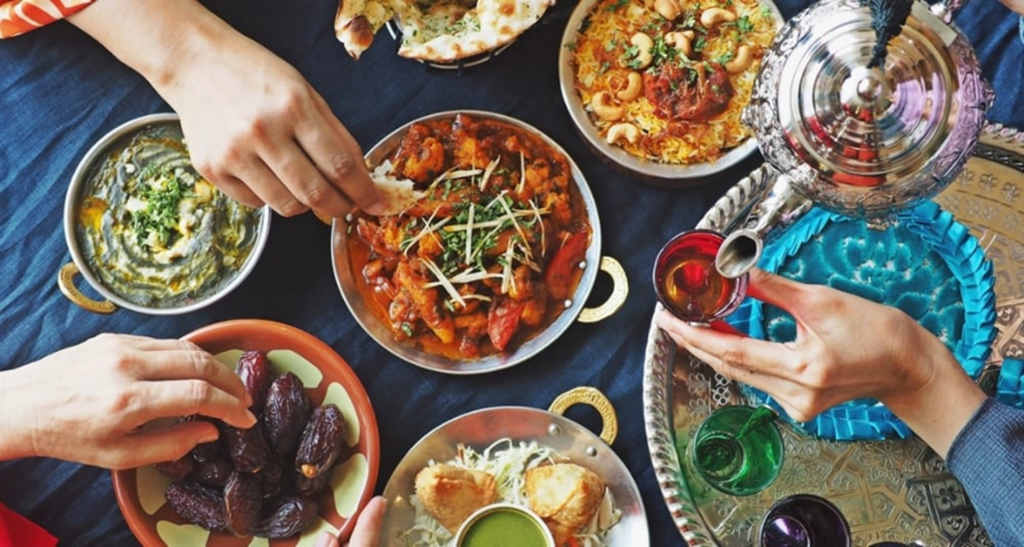FAQs about the Holy Month in the UAE Why is the Holy Month so significant for families? Families tend to spend more time together during Ramadan, which is due in part to the nature of the fast, which requires us to gather at the end of the day to share a meal. We all have
FAQs about the Holy Month in the UAE
Why is the Holy Month so significant for families?
Families tend to spend more time together during Ramadan, which is due in part to the nature of the fast, which requires us to gather at the end of the day to share a meal. We all have busy lives, and Ramadan is a great time to reconnect with family, friends, and neighbors. It’s also a chance to meet new neighbors by inviting them to a meal, and in general, it’s a time for the community to come together for a common spiritual cause.
Are there any customs that Dubai’s families follow during this time? When it comes to Ramadan, every family has their own set of traditions. The majority of family customs, particularly those involving small children, revolve around food. Special dishes, including many sweets, are prepared, and homes are usually bustling with neighbors, friends, and extended family gathering for meals.

Suhour, a traditional meal served before dawn, is the traditional way for Muslims to begin the day. This meal is usually shared by the entire family, and for young children, eating breakfast in the early hours of the morning can be exciting and novel. There are some foods that vary from family to family, but they usually include dates and plenty of water. Of course, there are the Eid preparations, such as buying new clothes, which are recommended if you have the means and gift-giving during the Eid festivities. Homes can be decorated to commemorate the end of Ramadan, and children enjoy making small gifts to give to friends and family.
What are the fasting rules for children and teenagers?
Children are required to begin fasting at puberty, but most begin around the age of seven. Depending on their ability and age, they may fast for a portion of the day or refrain from eating their favorite sugary cereal. Most children attempt to fast because they want to participate in what their siblings or parents are doing, long before they are required to do so by Islam.
However, there is more to fasting than not eating and drinking, and this is what is emphasized with children. As a result, the emphasis is on doing extra good deeds or being extra careful to obey their parents, rather than arguing and fighting with them.

Are there any other traditions that children should be aware of?
Muslim children should begin performing the obligatory prayers at the age of ten. They may join their families in extra prayers known as Tarawiyah (or’relief,’ which are night prayers performed in masjids after Isha, or late evening obligatory prayer. It is a prayer that assists in relieving or removing the burdens of this life.
What other way can we be culturally sensitive?
Being courteous to things like loud music and taking extra care when choosing what to wear in public is always appreciated during the month. Parents should simply inform their children that this is a month of worship, 24 hours a day, seven days a week, and to use common sense. Life does not stop; we simply become more spiritual and aware of the needs of those around us.

Is there any advice you could give to parents of older children who are fasting?
Allow your children to participate in fasting at a young age before it is required of them; this way, they will be ‘in shape’ for when it really matters. Children can begin by fasting for a portion of the day and performing extra good deeds from an early age. Those who have children who will be fasting for the first time as teenagers should involve them in all aspects so that they are kept busy during the day. Before dawn, get up and have a healthy suhoor.
Allow the children to participate in the preparation of the evening meal as well. Every child is unique, and we must respect their limitations; however, as long as they are healthy, they should be able to continue with their normal activities (counting for the heat at this time of year). Friends can be silently supportive by selecting activities that do not place additional strain on the body or that may serve as a distraction during the fast.
 Magazine
Magazine 


















Leave a Comment
Your email address will not be published. Required fields are marked with *